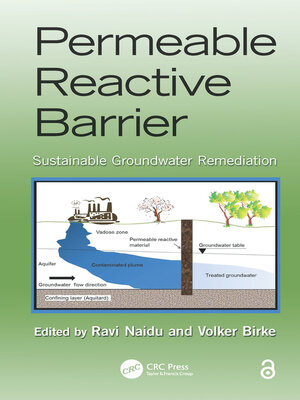Permeable Reactive Barrier
ebook ∣ Sustainable Groundwater Remediation · Advances in Trace Elements in the Environment
By Ravi Naidu

Sign up to save your library
With an OverDrive account, you can save your favorite libraries for at-a-glance information about availability. Find out more about OverDrive accounts.
Find this title in Libby, the library reading app by OverDrive.



Search for a digital library with this title
Title found at these libraries:
| Library Name | Distance |
|---|---|
| Loading... |
Remediation of groundwater is complex and often challenging. But the cost of pump and treat technology, coupled with the dismal results achieved, has paved the way for newer, better technologies to be developed. Among these techniques is permeable reactive barrier (PRB) technology, which allows groundwater to pass through a buried porous barrier that either captures the contaminants or breaks them down. And although this approach is gaining popularity, there are few references available on the subject. Until now. Permeable Reactive Barrier: Sustainable Groundwater Remediation brings together the information required to plan, design/model, and apply a successful, cost-effective, and sustainable PRB technology.
With contributions from pioneers in this area, the book covers state-of-the-art information on PRB technology. It details design criteria, predictive modeling, and application to contaminants beyond petroleum hydrocarbons, including inorganics and radionuclides. The text also examines implementation stages such as the initial feasibility assessment, laboratory treatability studies (including column studies), estimation of PRB design parameters, and development of a long-term monitoring network for the performance evaluation of the barrier. It also outlines the predictive tools required for life cycle analysis and cost/performance assessment.
A review of current PRB technology and its applications, this book includes case studies that exemplify the concepts discussed. It helps you determine when to recommend PRB, what information is needed from the site investigation to design it, and what regulatory validation is required.







